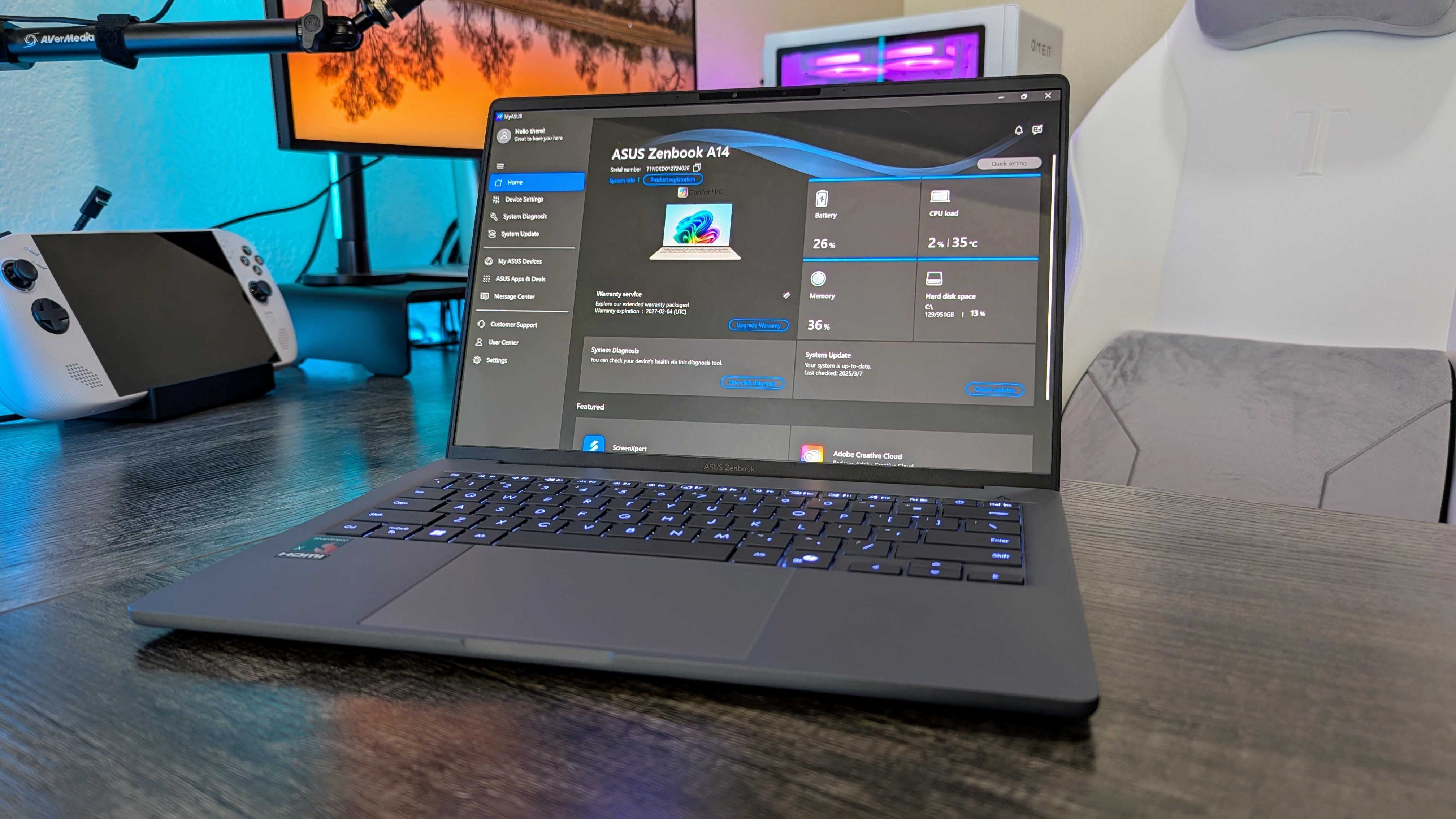Microsoft's Brad Smith reflects on the UK CMA regulator, changes tone while discussing the Xbox-Activision purchase
Brad Smith and the CMA are now besties. Kinda.

All the latest news, reviews, and guides for Windows and Xbox diehards.
You are now subscribed
Your newsletter sign-up was successful
What you need to know
- Microsoft President Brad Smith leads Microsoft's legal stance during court battles.
- During Microsoft's acquisition of Activision, the UK regulator was notoriously stubborn about allowing the deal to go through.
- At the time, Brad Smith said some of the UK regulatory decisions represented Microsoft's "darkest days" operating in the UK, and said that the UK was "closed for business."
- In an new interview, Brad Smith now thinks the UK regulator was "fair."
Microsoft's huge court battles for Activision-Blizzard pretty much dominated the gaming airwaves last year, as Microsoft tussled with the European Union, United States FTC, and UK CMA for regulatory approval. The EU approved the acquisition while winning legal bounds for cloud gaming provision, while the UK did so after forcing Microsoft to license out cloud gaming rights to Ubisoft to ensure competition is maintained. The United States FTC, however, is still fighting in court to have the acquisition overturned, after failing to win an injunction against Microsoft's closing of the deal over the summer.
With the vast majority of global regulators either approving or abstaining, Microsoft finally closed its deal for Activision-Blizzard last October. The deal sees developers on games like Call of Duty and World of Warcraft free of the Bobby Kotick regime, with the former CEO exiting the company just a couple of days ago. Developers both current and former recounted stories of Kotick's tenure at Activision, including a retelling of how Kotick once threatened to "have an employee killed" during an outburst he would later describe as "hyperbolic." Indeed, the vast majority of shareholders, developers, and even Activision customers are optimistic for the future of the company under Microsoft, which is why it was a tad baffling how difficult it was for Microsoft to get the deal past the UK regulatory body.

The UK was particularly stubborn over the acquisition, seemingly arbitrarily taking PlayStation's arguments at face value during hearings and debates. Sony's position as "the default" console seemed to give them an edge in early discussions, but deeper scrutiny saw the CMA change tactic. It would no longer be about competition in console gaming, but instead, cloud gaming, a market which as of yet barely exists and arguably needs investment from major cloud players to even stand a chance.
Yet still, the UK and EU both probably quite rightly envisioned a world where Microsoft could eventually dominate a gaming landscape wholly bereft of digital ownership. Competition between streaming services like Netflix and Disney+ has seen industry strikes in the United States, as actors and writers sought to get a better pay and conditions. Netflix and others have also been arbitrarily raising prices at a more rapid rate than Microsoft's similarly-structured Xbox Game Pass.
Brad Smith now thinks the UK CMA was 'fair'
It's undeniable that industry consolidation can lead to decreased competition, which can lead to higher prices for consumers, and weaker protections for employees. The EU and UK forced Microsoft to concede some of the rights to cloud streaming versions of its games, as such. The EU forced Microsoft to offer blanket access to its games to other cloud providers, such as Boosteroid and NVIDIA GeForce Now, while the UK forced Microsoft to go one step further, and divest the licenses to another company entirely (which Ubisoft won).
During the preliminary discussions, and far before the above solutions were figured out, Microsoft President Brad Smith decried the UK CMA, and UK legal framework in general. Smith described the UK as being "closed for business," and noted that the battles represented some of Microsoft's "darkest days" operating in the UK.
The comments were potentially problematic for the UK government, who has been trying to self-style as "pro business," seeking U.S. investment in the post-Brexit downturn. The UK CMA regulator is independent of the UK parliamentary structure, and as such, won some criticism from some UK MPs who inferred that the regulator to consider the wider economy over ideology. There were even some accusations that the UK regulator was working in collusion with the United States FTC, which has so far repeatedly failed to show any evidence for how Microsoft may seek to denigrate competition in a market dominated by its overseas competitors, like China's Tencent and Japan's Sony. Indeed, Smith's more recent comments may be designed to soften the FTC's on going arguments in the United States, as it continues to crusade against the deal even after Microsoft closed it.
All the latest news, reviews, and guides for Windows and Xbox diehards.
In an interview with the BBC, Brad Smith who leads much of Microsoft's legal operations, said that the UK CMA was "tough, but fair." Smith continued, "I think the CMA vindicated its position but still created a pragmatic path forward for innovation and investment. I think that is good for everyone."
Smith also discussed Microsoft's £2.5 billion ($3.16 billion) investment in UK cloud infrastructure and AI, in partnership with the UK government. "The UK government actually acted more boldly in 2023 than any other government on earth, committing £900m to build out [AI] infrastructure for the UK's researchers." The deal was announced a few short weeks after Microsoft closed its Activision-Blizzard acquisition, which sees Microsoft "double" its data center footprint in the UK, while committing funds to train and improve AI research in the country. Microsoft aims to create 20,000 jobs in the UK in this area in London and Cardiff, which the potential to expand further North into regions desperately in need of investment.
A happy ending (?)
While the UK CMA vs. Microsoft drama might be over (for now), Microsoft still faces scrutiny over its Microsoft Teams work tools practices, which Slack and others describe as "anti competitive." The European Union may also be seeking concessions from Microsoft over its designation as a "gatekeeper" company, although Microsoft will also potentially benefit here, since the same legislation will force Apple and Google to open up their mobile platforms to sideloading and third-party app stores. Microsoft's big strategy for Activision-Blizzard was, in the end, about building a competing mobile game store on iOS and Android, and 2024 will probably see the fruits of that investment.
In any case, it's all just business at the end of the day. Microsoft will still potentially have to face the FTC again in court over Activision, and may seek to use its UK CMA concessions as an example that it is willing to divest and find solutions that will benefit as many players as possible. The FTC may lack the legislative might that the UK CMA and European Commission enjoys with regard to competition regulations, but it hasn't exactly done itself any favors, presenting bad faith arguments that fall apart under even the vaguest of scrutiny.
For Activision developers and customers alike, the new era under Xbox will hopefully lead to a healthier working environment for those teams, and a renewed focus on players, rather than shareholders.
And as for UK job creation via Microsoft's sizeable cloud investments, as a Brit, I'd say we need all the help we can get. Let's get a nice big data center in the North too, yeah?

Jez Corden is the Executive Editor at Windows Central, focusing primarily on all things Xbox and gaming. Jez is known for breaking exclusive news and analysis as relates to the Microsoft ecosystem — while being powered by tea. Follow on X.com/JezCorden and tune in to the XB2 Podcast, all about, you guessed it, Xbox!
